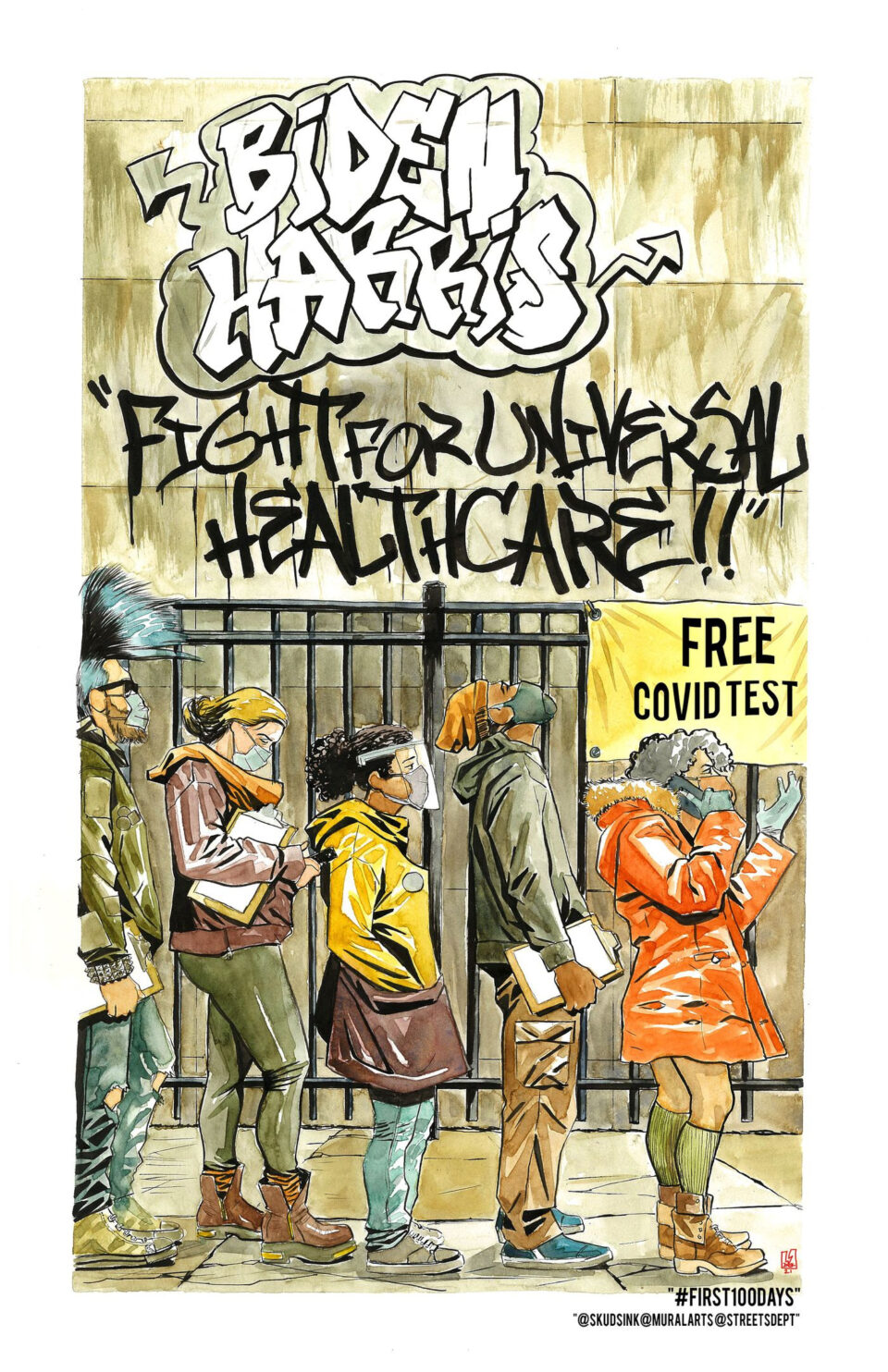Updated Feb. 2
Journalists of Color Eager to Fix Media Failures:
Maybe White Supremacy Will Be Taken Seriously
Dallas Blacks, Whites Made an ‘Accommodation’
Broadcasters to Aid ‘More Inclusive Workplace’
200 Want Anti-Racist Steps Taken in Public Media
Goya Board Muzzles Trump-Supporting CEO
Baseball Writers to Vote on Striking Racist’s Name
Linsey Davis Named ABC Sunday Night Anchor
Leon Carter Moves From ESPN to The Athletic
Short Takes
Support Journal-isms
Maybe White Supremacy Will Be Taken Seriously
Journalists of color writing about the change of administrations and the Jan. 6 white riot at the U.S. Capitol say they hope Americans now take seriously the issue of white supremacy and that the news media will follow suit. In his inauguration speech, Joe Biden became the first president to utter the phrase at the ceremony.
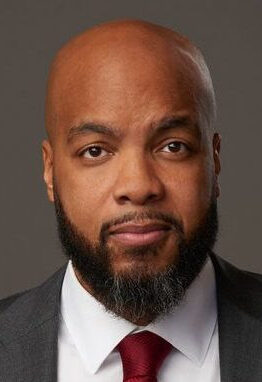 Trymaine Lee (pictured) said Friday on his “Into America” podcast for MSNBC, “Today, I’m holding a microscope up to the industry I work in to better understand how the media failed to cover race under the Trump administration and what we can do to better cover this country, the good and the ugly, now that Joe Biden is president.”
Trymaine Lee (pictured) said Friday on his “Into America” podcast for MSNBC, “Today, I’m holding a microscope up to the industry I work in to better understand how the media failed to cover race under the Trump administration and what we can do to better cover this country, the good and the ugly, now that Joe Biden is president.”
In one hopeful sign, Biden became the first president to utter the phrase in his inauguration speech.
Lee’s guest for the “Reporting on Race” episode, journalist Farai Chideya, agreed with Lee. “I’ve covered white nationalists and supremacists for 25 years, and I do it because they are people, and they are political organizers. If we want to hold up a standard about what journalism is, we have to cover everyone.
“And so I have been appalled by the spotty coverage of Black people, Latinos, immigrants, indigenous people, but I’ve also been appalled by the lack of coverage of poor white Americans, wealthy white Americans in terms of deconstructing structural power.
“I mean, Donald Trump, if people had investigated his finances 15 years ago, we never would have been here. And also of white nationalists and supremacists. So a lotta people were left out of the deconstruction of power, which is supposed to be part of the premise of journalism.”
Covering white nationalism doesn’t necessarily mean the economic angle, which some consider a tired trope. “I think Adam Serwer’s piece The Respectables [aka “The Capitol Rioters Weren’t ‘Low Class’”] was just brilliant, talking about how people with private planes, people with badges, people who are former and active duty military were all involved on January 6th,” Chideya said.
Ta-Nehisi Coates wrote Jan. 19 for The Atlantic, “It was popular, at the time of Donald Trump’s ascension, to stand on the thinnest of reeds in order to avoid stating the obvious. It was said that the Trump presidency was the fruit of ‘economic anxiety,’ of trigger warnings and the push for trans rights. We were told that it was wrong to call Trump a white supremacist, because he had merely ‘drawn upon their themes.’
“One hopes that after four years of brown children in cages; of attempts to invalidate the will of Black voters in Philadelphia, Atlanta, and Detroit; of hearing Trump tell congresswomen of color to go back where they came from; of claims that Joe Biden would turn Minnesota into ‘a refugee camp’; of his constant invocations of ‘the Chinese virus,’ we can now safely conclude that Trump believes in a world where white people are — or should be — on top.
“It is still deeply challenging for so many people to accept the reality of what has happened — that a country has been captured by the worst of its history, while millions of Americans cheered this on.”
To be sure, white nationalism isn’t the only topic that journalists of color feel was downplayed during the Trump years.
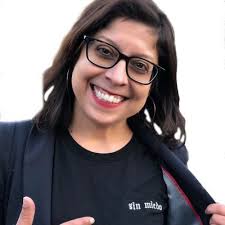 “We’ve only just begun to deal with all the damage done by the Trump presidency, but this was part of it: already underrepresented people and communities increasingly neglected while we were held hostage by an air-sucking aspiring autocrat,” Helen Ubiñas (pictured) wrote Jan. 23 for the Philadelphia Inquirer.
“We’ve only just begun to deal with all the damage done by the Trump presidency, but this was part of it: already underrepresented people and communities increasingly neglected while we were held hostage by an air-sucking aspiring autocrat,” Helen Ubiñas (pictured) wrote Jan. 23 for the Philadelphia Inquirer.
“So many times, while trying to balance the stories that needed to be amplified in our own backyard with the daily national disasters that couldn’t be ignored, I was struck by the unfairness.
“Imagine if we had put even a portion of the collective energy and effort into our communities.”
The reaction? “Got the typical hate mail from folks who said this proved elite liberal media didn’t care about anything (including ‘real news’) but taking Trump down,” Ubiñas messaged Journal-isms Sunday, “but also a LOT of feedback from people in the community who def felt like they and their stories have been sidelined — especially when it comes to gun violence in Philly.
“That’s long been our epidemic, still is and it has never (as I’ve written and said) gotten the kind of collective (national/local) outrage or attention that it needs. With the virus and Trump and everything that’s come since, it seems to fall even deeper between the cracks. Though I tried and continue to try hard to keep that from happening.
At least one Ubiñas column resulted from the call-out: “This Philadelphia filmmaker produced a love letter to her brother, shot and killed in June.”
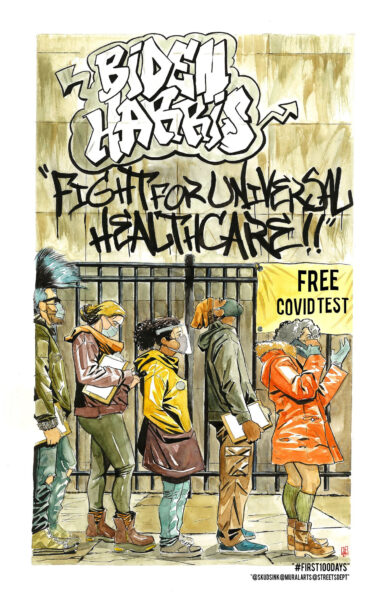
Also in the Inquirer, writer and curator Conrad Benner presented thoughts from the creative community: “10 policies Biden must pass in his first 100 days, as drawn by Philly artists.” Priorities ranged from health care to student loan debt.
The change of administrations prompted others to reflect on their role as journalists.
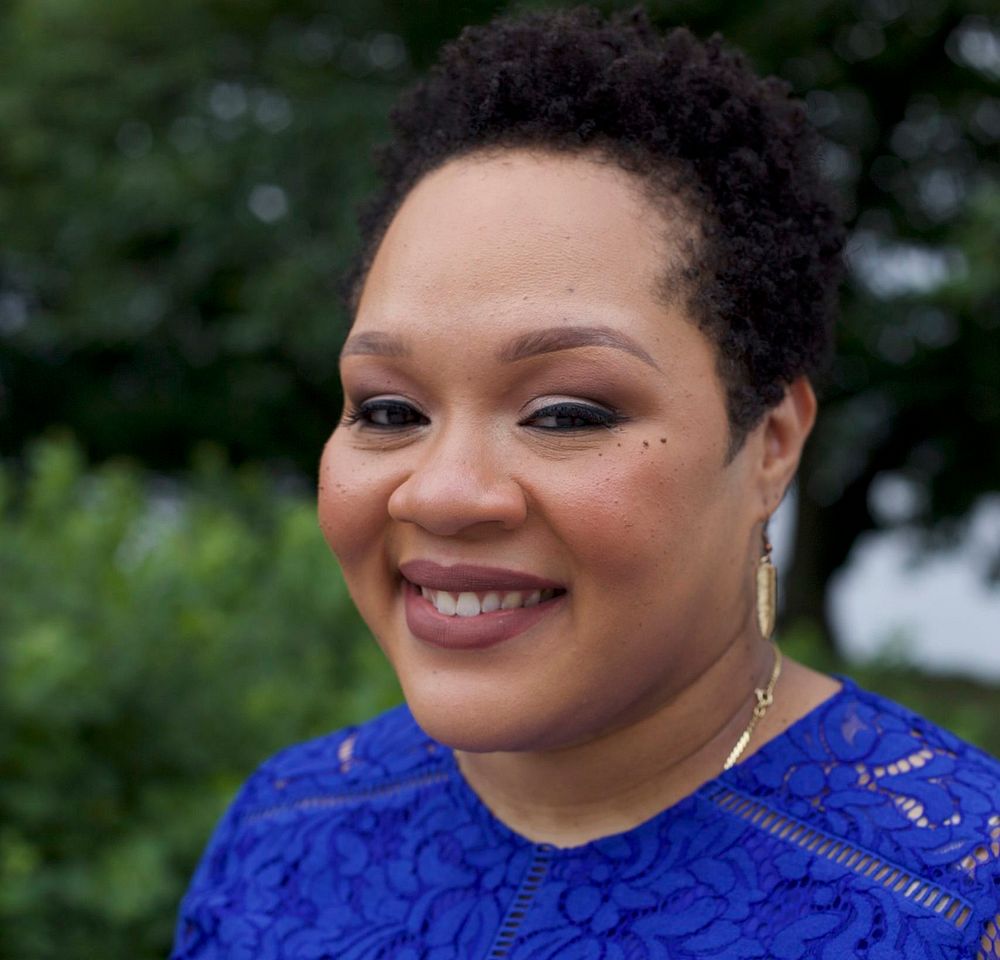 “I think the Trump presidency really revealed that journalism is a core part of our society and a critically important part of our democracy,” Yamiche Alcindor (pictured), White House correspondent for the “PBS NewsHour,” told Ian W. Karbal for Columbia Journalism Review. “If we don’t embrace journalism in a way that’s fearless, and in a way that is blunt, and in a way that pushes this country to really look at itself fully, then we’re not doing it right.”
“I think the Trump presidency really revealed that journalism is a core part of our society and a critically important part of our democracy,” Yamiche Alcindor (pictured), White House correspondent for the “PBS NewsHour,” told Ian W. Karbal for Columbia Journalism Review. “If we don’t embrace journalism in a way that’s fearless, and in a way that is blunt, and in a way that pushes this country to really look at itself fully, then we’re not doing it right.”
Karbal wrote on Inauguration Day, “She hopes that covering the Biden administration will provide the opportunity to focus less on the president’s behavior and more on policy. ‘We were all kind of drinking out of a firehose, trying to process all of the different things that were happening,’ Alcindor says of the past four years. The challenge, she says, is to address ‘the different aspects of our society that we just haven’t spent time delving into, because we were instead focused on sort of reality TV, and rhetoric, and rallies.’ ”
On slate.com, Aymann Ismail asked national political reporter Astead W. Herndon (pictured below) of The New York Times, “Did you feel any special significance to your work as a person-of-color journalist, or did you feel like maybe you had a special responsibility at all during the Trump era?“
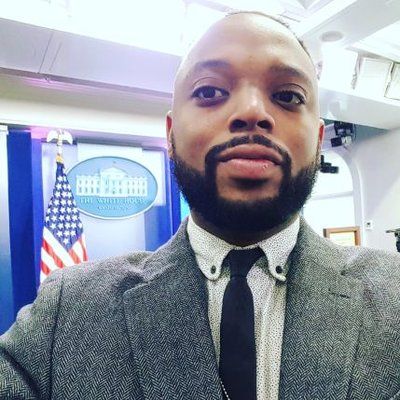 Herndon replied, “I feel that weight and responsibility, but it’s not because of Donald Trump. It’s that our communities deserve truthful and accurate reporting. And that is what I feel a responsibility toward. I don’t consider being a person of color journalist as being oppositional to Trump. I think of being a Black journalist as being pro-truth, pro-accountability and succeeding the tradition of Black journalists who have pushed the industry on what that looks like.
Herndon replied, “I feel that weight and responsibility, but it’s not because of Donald Trump. It’s that our communities deserve truthful and accurate reporting. And that is what I feel a responsibility toward. I don’t consider being a person of color journalist as being oppositional to Trump. I think of being a Black journalist as being pro-truth, pro-accountability and succeeding the tradition of Black journalists who have pushed the industry on what that looks like.
“Also, racism isn’t true. It’s false. And so as a journalist, it’s worth it to me to expose it as false, not as spite toward any one political actor. Trump certainly has changed the landscape, but my commitment to reporting does not change in a Biden era, because it’s not like a more norm-abiding president has any monopoly on facts. It obviously changes how we’re going to work, but my commitment to journalism will ground me much more than any type of resistance.”
Ismail confessed, “I guess I feel a little out of place at Slate because I didn’t go to journalism school. I didn’t go to an Ivy League college, and I sometimes feel like an imposter, or an affirmative action hire. Like they needed a Muslim guy, and I got lucky. Do you ever feel that way at the New York Times?
Herndon said, “I think that is a reflection on the institutions that have taken too long to change. But whether I would be here without Trump or not, I’m here. And you’re here. And so let’s do the work for the communities who deserve accurate reporting. I don’t think that we can rid ourselves of other people’s perception about us, because that’s how under-representation functions. That’s how power replicates itself. It requires minimizing the work of people of color and Black journalists and the value that they add to these organizations.”
- Julia Ainsley, Jacob Soboroff and Geoff Bennett, NBC News: Biden likely to delay executive orders on immigration, including a task force to reunite families
- Anti-Defamation League: American Attitudes toward Extremist Threats: A Survey Following the Events at the U.S. Capitol (Jan. 12)
- Milena Berry and Katharine Zaleski, PowerToFly: Diversity Reboot 2021: The One Hundred Day Kickoff
- Jamelle Bouie, New York Times: We Have to Make the Republican Party Less Dangerous (Jan. 22)
- Paul Delaney, USA Today: ‘Where Do We Go from Here?’ King’s question amid the chaos of the ’60s still resonates today (Jan. 18)
- Elvia Díaz, Arizona Republic, President Joe Biden is darn right to impose a 100-day deportation moratorium (Jan. 21)
- Jean Guerrero, New York Times: 3 Million People Were Deported Under Obama. What Will Biden Do About It? (Jan. 23)
- Alan Jenkins, Hollywood Reporter: Trump’s Leaving, But Hollywood Must Confront Trumpism In Its Storytelling (Jan. 14)
- Roy S. Johnson, al.com: Finally. (Jan. 20)
- National Association of Hispanic Journalists: NAHJ Applauds Biden Administration’s Immediate Focus on the Impact of Language in Proposed Immigration Bill (Jan. 21)
- Anna North, vox.com: White women’s role in white supremacy, explained (Jan. 15)
- Maggie Jones Patterson, Columbia Journalism Review: How much do we need to know about domestic terrorists? (Jan. 25)
- Daisy Prado, Latino Rebels: Dear America, With Trump Gone, Are You Still Committed to Fighting White Supremacy?
- Eugene Robinson, Washington Post: The Biden administration’s biggest challenges are its best opportunities (Jan. 21)
- Jeremy Scahill, The Intercept: Biden Should End Espionage Act Prosecutions of Whistleblowers and Journalists (Jan. 21)
- Society of Professional Journalists: SPJ requests discussion with Biden Administration about the free flow of information
- Dan Spinelli, Mother Jones: Trump’s State Department Had a “Humiliating” Lack of Diversity. Can Joe Biden Fix It? (Jan. 15)
- Ben Strauss, Washington Post: Bomani Jones thrives where race and sports collide. Can he be a star at ESPN? (Jan. 25)
- Hiroko Tabuchi and Nadja Popovich, New York Times: Two Biden Priorities, Climate and Inequality, Meet on Black-Owned Farms
- Juan Williams, The Hill: Let America be America (Jan. 25)
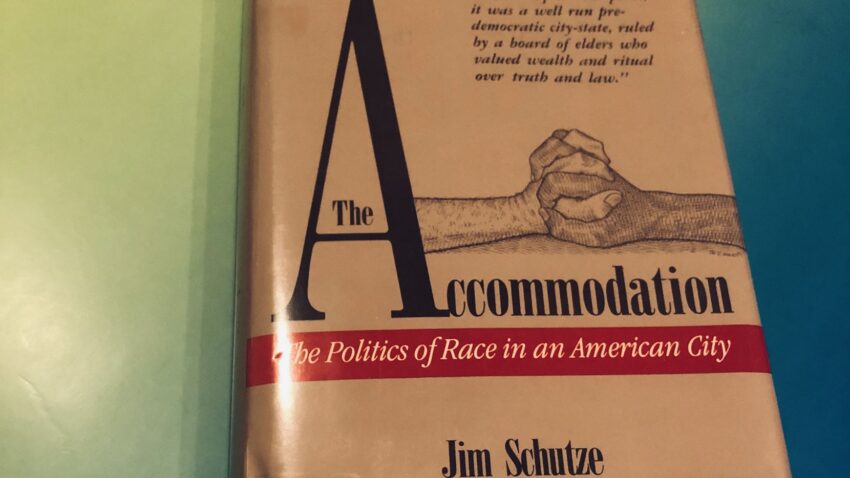
Dallas Blacks, Whites Made an ‘Accommodation’
“A reader, upset about a piece I wrote about racism, snarled at me that if I ever wanted to understand race relations in Dallas, I must read Jim Schutze’s 1986 book, The Accommodation,” Dave Lieber (pictured, below) wrote Jan. 21 in his Dallas Morning News “Watchdog Nation” column.
“Here are eight stunning facts I learned from and about the book.
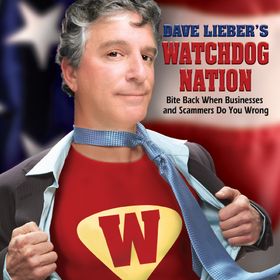 “1. What is ‘the accommodation’? The point of the book is that Black and white residents made an accommodation with each other [in] the early 1950s. Even with extensive police patrols, whites were bombing homes owned by Black residents in white neighborhoods — and getting away with it. In return for the bombings to stop, Black residents were allowed by white leadership to move into a newly created Black neighborhood, Hamilton Park.
“1. What is ‘the accommodation’? The point of the book is that Black and white residents made an accommodation with each other [in] the early 1950s. Even with extensive police patrols, whites were bombing homes owned by Black residents in white neighborhoods — and getting away with it. In return for the bombings to stop, Black residents were allowed by white leadership to move into a newly created Black neighborhood, Hamilton Park.
“Because of this deal, the civil rights movement was not nearly as aggressive as it was in other American cities, setting the cause of Black rights in Dallas back decades. . . .
“5. What makes the book special? Schutze wrote the book while writing four columns a week for the old Dallas Times Herald. He spent nights in the library and found lost stories that Dallas officialdom tried to bury. How whole Black neighborhoods were razed to benefit whites. How Black residents were denied the right to buy homes in most of the city and earn equity. How the white power structure only recognized certain conservative Black residents as city leaders. And how the purpose of the police was to protect whites from Black residents.
“The book shows how Black people were not allowed to try on clothing in stores because then whites wouldn’t buy the offerings. A white person could try on a hat, for instance, but a Black person had their head measured instead.
“When out-of-town civil rights leaders visited Dallas, they were shocked by the passivity and lack of courage by Black residents to fight for rights as was happening in other cities. Dallas was far behind.
“There was no unity among the Black community because, as the Rev. Peter Johnson says in the book, ‘the Black community has never given the power structure reason to respect it.’ No, because the accommodation blocked that. . . .”
Broadcasters to Aid ‘More Inclusive Workplace’
The National Association of Broadcasters, “the premier advocacy association for America’s broadcasters,” has created a Diversity, Equity and Inclusion Advisory Committee made up of senior-level broadcasters who are women and people of color.
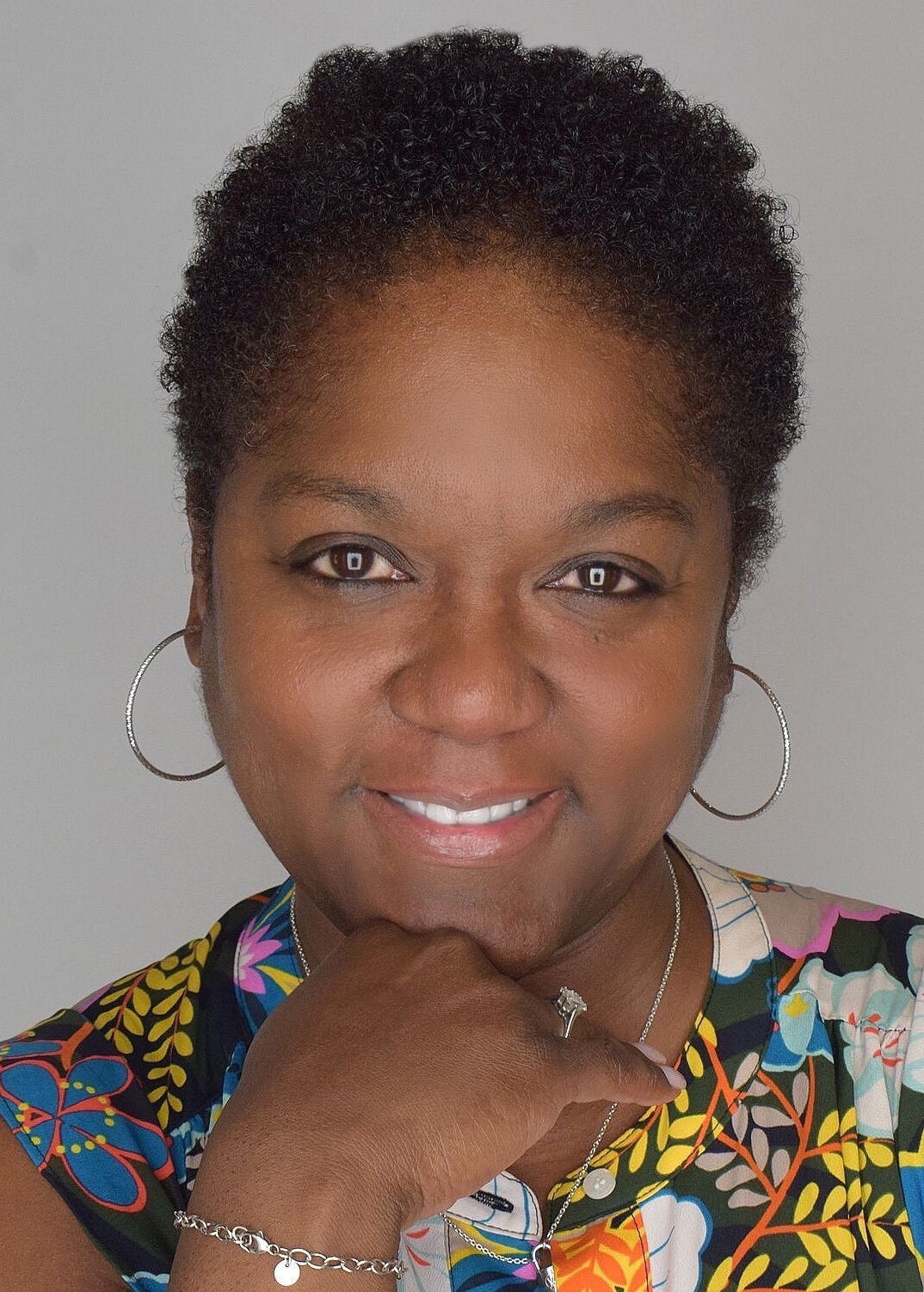 “NAB is committed to ensuring diverse voices are represented in radio and television broadcasting and that every employee has the opportunity to excel in their career,” Michelle Duke (pictured), president of the NAB Leadership Foundation and NAB’s chief diversity officer, said in a statement Thursday.
“NAB is committed to ensuring diverse voices are represented in radio and television broadcasting and that every employee has the opportunity to excel in their career,” Michelle Duke (pictured), president of the NAB Leadership Foundation and NAB’s chief diversity officer, said in a statement Thursday.
“This new committee will help NAB continue moving diversity and equity forward, and provide guidance for the broadcast community in creating a more inclusive workplace.”
Inaugural members are Sandy Breland, SVP, local media, Gray Television; Trila Bumstead, owner, Ohana Media Group; Caroline Chambers, senior director, diversity, Graham Media Group; Alysia Long, VP, associate general counsel, regulatory, Cox Media Group; Estevan Gonzales, general manager/owner, KSWV Radio.
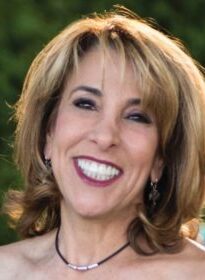 Also, Corey Hanson, general manager, WALA-TV, Mobile, Ala., Meredith Local Media Group; Michele Laven (chair) (pictured), chief diversity and human resources officer, iHeartMedia; DuJuan McCoy, owner, president and CEO, Circle City Broadcasting; Heidi Raphael, chief communications officer, Beasley Media Group; Oscar Rodriguez, president, Texas Association of Broadcasters; Sharon Tinsley, president, Alabama Association of Broadcasters; Grady Tripp, chief diversity officer, Tegna; and Joel Vilmenay, general manager, WDSU New Orleans, Hearst Television.
Also, Corey Hanson, general manager, WALA-TV, Mobile, Ala., Meredith Local Media Group; Michele Laven (chair) (pictured), chief diversity and human resources officer, iHeartMedia; DuJuan McCoy, owner, president and CEO, Circle City Broadcasting; Heidi Raphael, chief communications officer, Beasley Media Group; Oscar Rodriguez, president, Texas Association of Broadcasters; Sharon Tinsley, president, Alabama Association of Broadcasters; Grady Tripp, chief diversity officer, Tegna; and Joel Vilmenay, general manager, WDSU New Orleans, Hearst Television.
- Radio World: iHeart Creates New D&I Post
200 Want Anti-Racist Steps Taken in Public Media
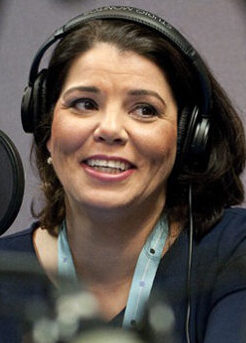 More than 200 people in public media have come together to “identify the primary obstacles to anti-racist public media and create a vision for transformation,” veteran public radio journalist Celeste Headlee (pictured) wrote Jan. 18 for medium.com.
More than 200 people in public media have come together to “identify the primary obstacles to anti-racist public media and create a vision for transformation,” veteran public radio journalist Celeste Headlee (pictured) wrote Jan. 18 for medium.com.
“It’s time for a new kind of journalism: anti-racist journalism. We hope to tear down public radio in order to build it back up. We don’t critique our industry because we hate it, but because we love it and hope it can live up to a higher standard of inclusivity that serves our diverse communities.”
Steve Swenson, president and CEO of Nashville Public Radio; Charles Fox, general manager of
WCSU-FM at Central State University, and Goli Sheikholeslami, president and CEO of New York Public Radio, are among those who have signed on as supporters, according to the Public Media Anti-Racist Partnership, writing Jan. 18 in Current.
The document proposes steps to take in the categories of “Amends,” “Hiring, Promotions, and Pay Structures,” “Training,” “Transforming Coverage” and “Accountability.”

Goya Board Muzzles Trump-Supporting CEO
“Goya’s board of directors had enough of CEO Robert Unanue’s public comments in support of former President Donald Trump and his unfounded claims of voter fraud. On Friday, it voted to muzzle him,” Maria Santana and Chris Isidore wrote Tuesday for CNN.
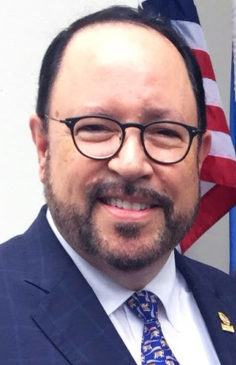 “The board of the privately held Latino food company voted to censure Unanue (pictured), following his most recent controversial remarks that questioned the legitimacy of the November election, according to a person familiar with the board’s actions, who spoke to CNN on the condition that their name not be used.
“The board of the privately held Latino food company voted to censure Unanue (pictured), following his most recent controversial remarks that questioned the legitimacy of the November election, according to a person familiar with the board’s actions, who spoke to CNN on the condition that their name not be used.
“Unanue will no longer be allowed to speak to the media without the board’s permission, the source said. The decision was first reported by the New York Post Monday evening. . . . ‘ “
- Gabrielle Berbey and Alejandra Salazar, “Latino USA”: Goya In Three Boycotts (podcast)
Baseball Writers to Vote on Striking Racist’s Name
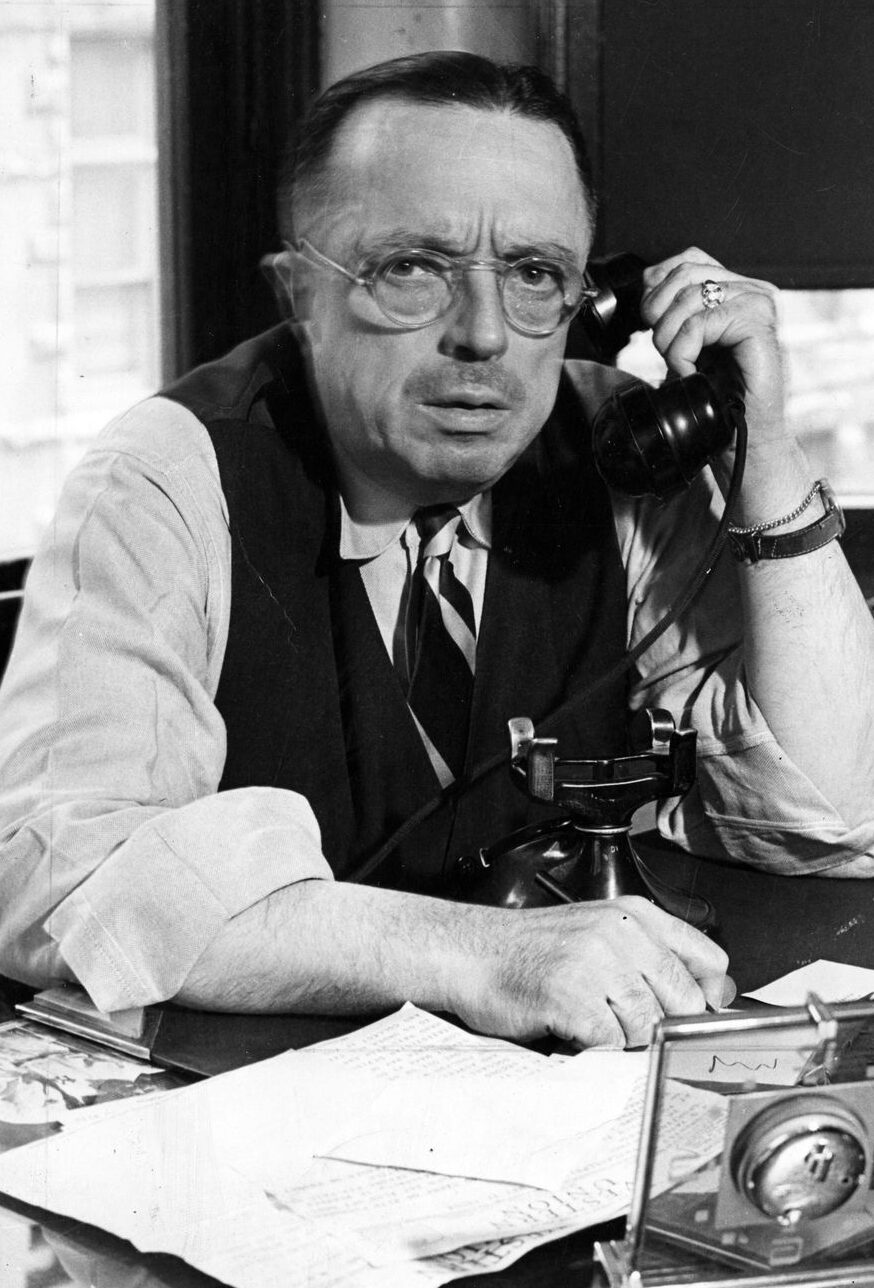 “At some point in February, the Baseball Writers’ Association of America is expected to announce the voting results on a proposal to remove J.G. Taylor Spink’s (pictured in 1942) name from the organization’s most prestigious member award, which has been given to writers ‘for meritorious contributions to baseball writing’ since 1962,” Ryan Fagan wrote for the Sporting News.
“At some point in February, the Baseball Writers’ Association of America is expected to announce the voting results on a proposal to remove J.G. Taylor Spink’s (pictured in 1942) name from the organization’s most prestigious member award, which has been given to writers ‘for meritorious contributions to baseball writing’ since 1962,” Ryan Fagan wrote for the Sporting News.
“The winners are part of the annual Induction Weekend at the Hall of Fame in Cooperstown, N.Y., and have a special place in the museum. Spink, publisher of The Sporting News from 1914 to 1962, was the award’s first recipient, shortly after his death.
“Sporting News fully supports the proposal to remove Spink’s name. I have worked at Sporting News since 2005 and been a BBWAA member since 2006, and I will vote to remove the name; so will SN’s two other BBWAA members: Jason Foster (member since 2016) and Joe Rivera (2018), Fagan wrote.
“Spink was the publisher of the largest, most powerful baseball publication in the country for nearly half a century, and he used that position to strongly advocate against the integration of the sport. In the decades before Jackie Robinson’s debut, Spink largely ignored the Negro Leagues and its players and used his publication to sustain negative — and untrue — stereotypes of not just Negro League ballplayers, but also Black Americans in general. . . .”
Linsey Davis Named ABC Sunday Night Anchor
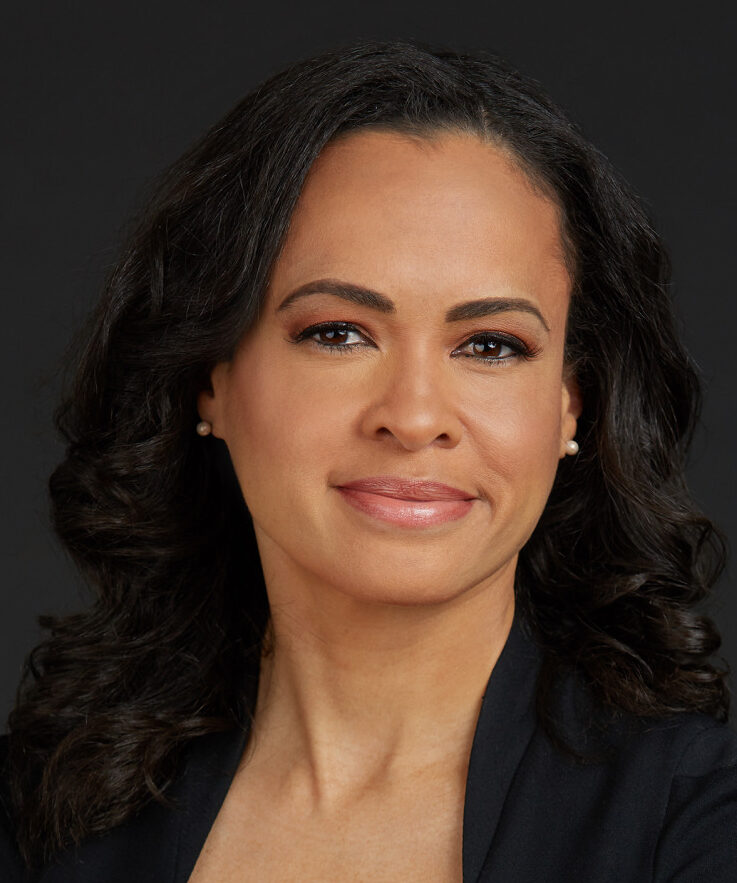 ABC News Monday named Linsey Davis (pictured) and Whit Johnson new weekend anchors for the network’s flagship evening newscast, “World News Tonight.” Johnson will anchor on Saturdays, with Davis anchoring on Sundays.
ABC News Monday named Linsey Davis (pictured) and Whit Johnson new weekend anchors for the network’s flagship evening newscast, “World News Tonight.” Johnson will anchor on Saturdays, with Davis anchoring on Sundays.
Davis said on the ABC News morning editorial call where the announcement was made, “We are certainly kicking off Black History Month with a bang. Because today I’m mindful of Carole Simpson, and the decision that Roone Arledge made back in 1988, to promote her to the anchor of weekend ’World News Tonight’ and in doing so catapulted her into the history books as the first Black woman to helm any major network national newscast. And now three decades later she has the distinction of being, as our vice president would say, ‘the first but not the last.’ ”
Davis and Johnson succeed Tom Llamas, who is leaving ABC News reportedly to join NBC News, Alex Weprin wrote for The Hollywood Reporter.
ABC News president James Goldston wrote to the staff in a memo Monday morning:
“Linsey has had an impressive rise at ABC News as a result of her unflinching interview prowess, her versatility and experience. Last year she was named anchor of ’ABC News Live’s’ first-ever streaming evening newscast in primetime, which has surged in viewership by over 200% since launch a year ago.
“Her presidential debate moderating performance was nothing short of commanding, holding candidates to account on racial inequality before social unrest swept the nation last summer. Linsey co-anchored our 2020 election coverage, including all eight nights of the Democratic and Republican National Conventions, two presidential debates, the vice presidential debate, five straight days of presidential election coverage until a winner was declared and Inauguration Day.
“Her interviews have included a wide range of newsmakers from Hillary Clinton and Mike Pence to Dr. Anthony Fauci, Camille Cosby and a powerful jailhouse conversation with Myon Burrell. She conducted the first roundtable discussion with Black female mayors from across the country during the height of protests against police brutality and anchored the documentary ‘Homegrown Hate: The War Among Us’ – a chilling look into hate-inspired violence and intimidation, and the growth of domestic terrorism. She’ll continue to anchor ‘ABC News Live Prime’ Monday through Thursday, and we’ll rotate anchors on Friday nights.”
Leon Carter Moves From ESPN to The Athletic
Per internal note to staff, The Athletic hired Leon Carter as editorial director focused on talent development. Carter was VP at ESPN and helped launch The Undefeated. From note: “A big theme for us in 2021 is talent development and unlocking new growth potential for all staff.”
— Ben Strauss (@benjstrauss) February 1, 2021
Adam Hansmann, president and co-founder of The Athletic, wrote:
“. . . 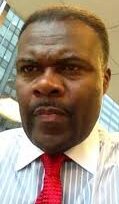 @Leon Carter (pictured) joins The Athletic today as Editorial Director, Talent and Development and will be responsible for overseeing and implementing talent development programs, partnering with our People & Talent team on strategic initiatives, and working with editorial leadership across a broad range of projects.
@Leon Carter (pictured) joins The Athletic today as Editorial Director, Talent and Development and will be responsible for overseeing and implementing talent development programs, partnering with our People & Talent team on strategic initiatives, and working with editorial leadership across a broad range of projects.
“Leon joins us after ten years at ESPN where his key projects included the launch of ESPN New York, overseeing multiple ESPN local sites and spearheading the early stages of the Undefeated. He was previously an award-winning sports editor for the New York Daily News from 1999-2010 and brings more than 30 years of experience in sports journalism.
“Additionally, Leon was also the founder of the Sports Journalism Institute (SJI), a nine-week training and internship program for college students interested in sports journalism, which counts numerous The Athletic staffers among its graduates. As I mentioned in a recent all-hands, a big theme for us in 2021 is talent development and unlocking new growth opportunities for all staff. . . .”
Short Takes
- “On Tuesday, January 5, 2021, we discovered that AABJ funds were misused by a former AABJ treasurer,” the Atlanta Association of Black Journalists Executive Board wrote members on Jan. 22. “After a two-week internal investigation, it was found that between 2016 and 2020 more than $39,000 from the Xernona Clayton Scholarship Fund and the General Operating Accounts were misappropriated for personal use.” Jennifer Matthews, the former treasurer, messaged Journal-isms that she had reimbursed the chapter the full amount. An Atlanta police spokesman messaged Monday, “No arrests made at this time, the investigation remains ongoing.”
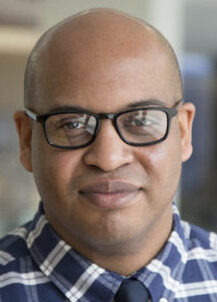 In Washington, “WAMU has dismissed senior managing editor Zuri Berry (pictured) and senior Jeffrey Katz as a result of investigations into the public radio station’s culture,” Andrew Beaujon reported Jan. 22 for Washingtonian. An email to staff on Friday from interim content boss Monna Kashfi . . . didn’t name the employees WAMU let go and said the firings reflected ‘ongoing efforts to improve our workplace culture.’ Berry, who is suing the station, quickly sent out a statement to press . . . and Katz confirms to Washingtonian that he [is[ the other person to depart. . . .” Berry responded in part, “It’s all preposterous with no basis in fact. The most hurtful of these claims is that I targeted women of color. This was anonymously quoted in Current and repeated in court documents. It is a lie propagated by a white woman who targeted three different people of color on staff. I consider this to be a brazen form of racism. . . .”
In Washington, “WAMU has dismissed senior managing editor Zuri Berry (pictured) and senior Jeffrey Katz as a result of investigations into the public radio station’s culture,” Andrew Beaujon reported Jan. 22 for Washingtonian. An email to staff on Friday from interim content boss Monna Kashfi . . . didn’t name the employees WAMU let go and said the firings reflected ‘ongoing efforts to improve our workplace culture.’ Berry, who is suing the station, quickly sent out a statement to press . . . and Katz confirms to Washingtonian that he [is[ the other person to depart. . . .” Berry responded in part, “It’s all preposterous with no basis in fact. The most hurtful of these claims is that I targeted women of color. This was anonymously quoted in Current and repeated in court documents. It is a lie propagated by a white woman who targeted three different people of color on staff. I consider this to be a brazen form of racism. . . .”
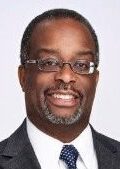 Cesar Aldama (pictured), manager of news operations at Philadelphia’s NBC-owned WCAU-TV and WWSI, known as Telemundo 62, started at Black News Channel Monday as senior director of news, Princell Hair, president and CEO, confirmed Feb. 2 for Journal-isms. In October, Hair announced that Gary Wordlaw, vice president of programming and news, would transition to vice president of syndicated programs, documentaries and investigations. Aldama said Sunday in a Facebook post, “My parents always said, ‘leave everyplace better than when you arrived!,’ Mission accomplished. Onto the next chapter at BNC!”
Cesar Aldama (pictured), manager of news operations at Philadelphia’s NBC-owned WCAU-TV and WWSI, known as Telemundo 62, started at Black News Channel Monday as senior director of news, Princell Hair, president and CEO, confirmed Feb. 2 for Journal-isms. In October, Hair announced that Gary Wordlaw, vice president of programming and news, would transition to vice president of syndicated programs, documentaries and investigations. Aldama said Sunday in a Facebook post, “My parents always said, ‘leave everyplace better than when you arrived!,’ Mission accomplished. Onto the next chapter at BNC!”
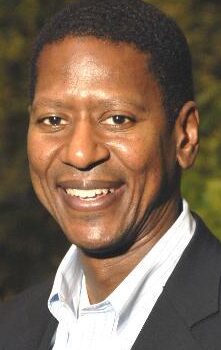 Calvin Sims (pictured) became the new executive vice president of standards and practices at CNN on Monday, Brian Stelter reported Friday for CNN. Sims succeeds Rick Davis, who “has held the role since 1998, and his career with CNN dates back to 1980, and the day the cable news network was founded.” Sims joined CNN in September. as an accomplished media executive, with more than 30 years of experience in news, foreign affairs and philanthropy, serving in senior roles at International House, The New York Times, Discovery Times Channel, Ford Foundation and Council on Foreign Relations,” CNN said in the September announcement.
Calvin Sims (pictured) became the new executive vice president of standards and practices at CNN on Monday, Brian Stelter reported Friday for CNN. Sims succeeds Rick Davis, who “has held the role since 1998, and his career with CNN dates back to 1980, and the day the cable news network was founded.” Sims joined CNN in September. as an accomplished media executive, with more than 30 years of experience in news, foreign affairs and philanthropy, serving in senior roles at International House, The New York Times, Discovery Times Channel, Ford Foundation and Council on Foreign Relations,” CNN said in the September announcement.
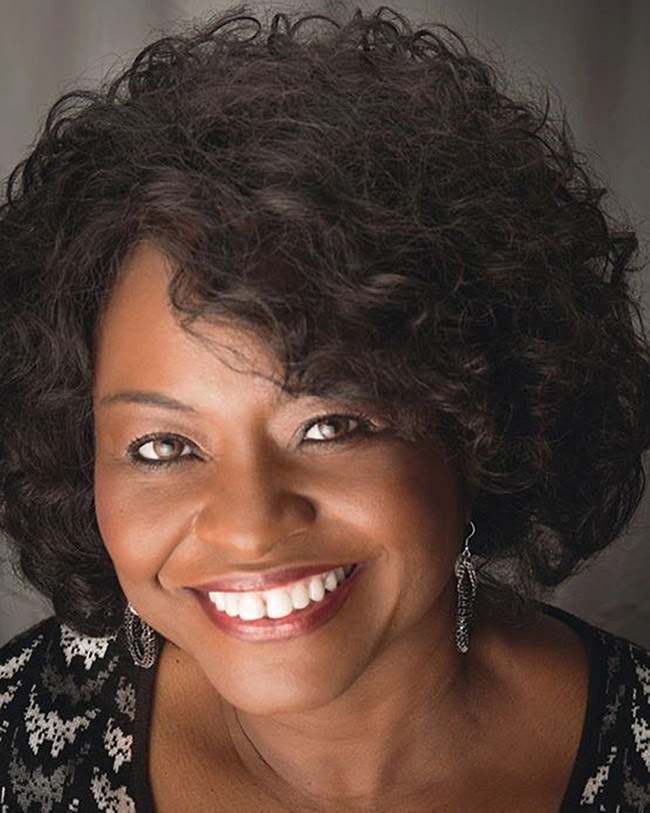 Diane L. Parker (pictured), who for the past 20 years was director of staffing, global diversity and Inclusion for the Associated Press, has been named vice president of diversity and inclusion for the Meredith Corp. The company, which produces service journalism on multiple platforms, made the announcement Tuesday.
Diane L. Parker (pictured), who for the past 20 years was director of staffing, global diversity and Inclusion for the Associated Press, has been named vice president of diversity and inclusion for the Meredith Corp. The company, which produces service journalism on multiple platforms, made the announcement Tuesday.
- “Amid the renewed social justice movement sparked by the death of George Floyd at the hands of police officers last spring, Super Bowl LV will be closely watched for how well it embraces inclusivity and pushes for accurate representation,” Jeanine Poggi wrote Thursday for AdAge. “Marketers will be judged in 2021 by how they are ‘prioritizing the use of cultural insights in the content in order to connect with consumers at the heart, thus maximizing corporate growth,’ says Aaron Walton, CEO and founder of the agency Walton Isaacson, whose Super Bowl experience has included 2018’s ‘Black Panther’-themed spot for Lexus. . . .”
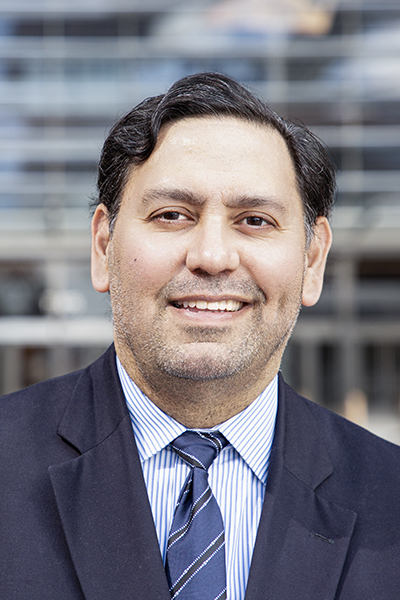 Ramon Escobar (pictured) has been named CNN’s senior vice president of talent recruitment and development, promoted from vice president. Escobar has the same responsibilities, but Amy Entelis, executive vice president for talent and content development for CNN Worldwide, wrote Wednesday to staffers, “Our correspondent and anchor corps is more talented and diverse than it’s ever been. Ramon’s work has made us a more competitive force, better prepared to cover the complex stories that we face every day. Ramon has also developed and championed a system for talent outreach for some key on and off air roles, which ensures that we have the best people in the appropriate roles. Ramon has worked alongside Jeff [Zucker, president], Lisa [Greene, vice president of human resources] and me to make sure that our entire organization knows that talent recruitment, development and diversity are high priorities for CNN. . . .”
Ramon Escobar (pictured) has been named CNN’s senior vice president of talent recruitment and development, promoted from vice president. Escobar has the same responsibilities, but Amy Entelis, executive vice president for talent and content development for CNN Worldwide, wrote Wednesday to staffers, “Our correspondent and anchor corps is more talented and diverse than it’s ever been. Ramon’s work has made us a more competitive force, better prepared to cover the complex stories that we face every day. Ramon has also developed and championed a system for talent outreach for some key on and off air roles, which ensures that we have the best people in the appropriate roles. Ramon has worked alongside Jeff [Zucker, president], Lisa [Greene, vice president of human resources] and me to make sure that our entire organization knows that talent recruitment, development and diversity are high priorities for CNN. . . .”
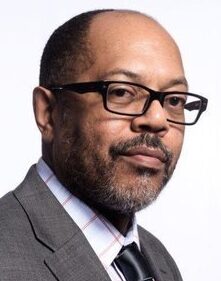 Kevin Merida’s (pictured) name has come up in stories about vacancies for the top editorial jobs at The Washington Post, The New York Times, the Los Angeles Times, Reuters, Wired, Vox, HuffPost and the Center for Public Integrity. The Post’s Sarah Ellison wrote Wednesday of the search to replace Executive Editor Martin Baron of the Post, “Rumored candidates include Kevin Merida, a former Post managing editor who is now the editor in chief of ESPN’s the Undefeated. But according to people familiar with the search, ESPN, which is owned by Disney, is eager to keep him. Merida is in his mid-60s, which would suggest he would not serve as a long-term replacement for Baron, who is 66.” Merida did not respond to an inquiry.
Kevin Merida’s (pictured) name has come up in stories about vacancies for the top editorial jobs at The Washington Post, The New York Times, the Los Angeles Times, Reuters, Wired, Vox, HuffPost and the Center for Public Integrity. The Post’s Sarah Ellison wrote Wednesday of the search to replace Executive Editor Martin Baron of the Post, “Rumored candidates include Kevin Merida, a former Post managing editor who is now the editor in chief of ESPN’s the Undefeated. But according to people familiar with the search, ESPN, which is owned by Disney, is eager to keep him. Merida is in his mid-60s, which would suggest he would not serve as a long-term replacement for Baron, who is 66.” Merida did not respond to an inquiry.
- “BET debuts two new projects during Black History Month under its media-focused initiative ‘Content For Change,’ ” BET announced on Monday. They are ‘BET and CBS News Present: Boiling Point’ and investigative documentary series ‘Disrupt & Dismantle’ with award-winning journalist, speaker, author, and philanthropist Soledad O’Brien.”
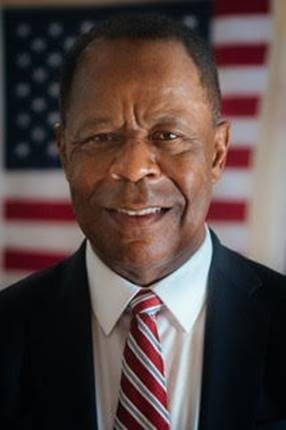 Leo Terrell (pictured), an African American civil rights lawyer whose recent pronouncements include “I don’t know what Joe Biden has done for Black people other than insulting Black people,” has been named a Fox News contributor to provide commentary and analysis across all platforms, including Fox News Channel and Fox Business Network, the network announced Thursday. Terrell told Fox News’ Sean Hannity after the George Floyd killing by police last year that “Democrats are silent on destruction of communities in nationwide protests because they don’t want to alienate black voters.”
Leo Terrell (pictured), an African American civil rights lawyer whose recent pronouncements include “I don’t know what Joe Biden has done for Black people other than insulting Black people,” has been named a Fox News contributor to provide commentary and analysis across all platforms, including Fox News Channel and Fox Business Network, the network announced Thursday. Terrell told Fox News’ Sean Hannity after the George Floyd killing by police last year that “Democrats are silent on destruction of communities in nationwide protests because they don’t want to alienate black voters.”
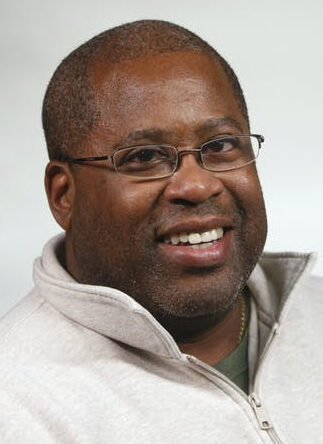 “After 23 years of covering the Minnesota Twins and Major League Baseball for the Star Tribune, La Velle E. Neal III (pictured) is taking on a new challenge. Neal will become a sports columnist for [the] Star Tribune, beginning next month,” Chris Carr reported Wednesday for the Star Tribune in Minneapolis. “The 55-year-old Chicago native has built credibility in Minnesota and beyond as an authority on not only the Twins but on all corners of baseball. Before joining the Star Tribune in 1997, he covered many sports at the Kansas City Star, including basketball, soccer, high schools and even an annual local rodeo. . . .”
“After 23 years of covering the Minnesota Twins and Major League Baseball for the Star Tribune, La Velle E. Neal III (pictured) is taking on a new challenge. Neal will become a sports columnist for [the] Star Tribune, beginning next month,” Chris Carr reported Wednesday for the Star Tribune in Minneapolis. “The 55-year-old Chicago native has built credibility in Minnesota and beyond as an authority on not only the Twins but on all corners of baseball. Before joining the Star Tribune in 1997, he covered many sports at the Kansas City Star, including basketball, soccer, high schools and even an annual local rodeo. . . .”
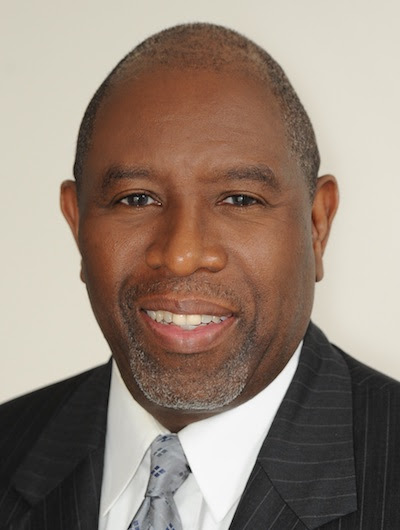 “The Society of Professional Journalists Foundation is receiving a gift of $185,000 from Craig Newmark Philanthropies to put a greater focus on journalism ethics,” SPJ announced Wednesday. “Among other things, the program will expand SPJ’s longstanding Ethics Hotline, which provides journalists with instant access to experts on how to address ethical questions, and will support SPJ’s new Race and Gender Hotline, which provides support for journalists covering sensitive content regarding race and gender. It also funds an ethics director position, which has been filled by Rod Hicks (pictured), who served as SPJ’s Journalist on Call for the past three years. In this role, Hicks will lead all efforts to increase awareness and understanding of the SPJ Code of Ethics and encourage its use in higher education and professional newsrooms. . . .”
“The Society of Professional Journalists Foundation is receiving a gift of $185,000 from Craig Newmark Philanthropies to put a greater focus on journalism ethics,” SPJ announced Wednesday. “Among other things, the program will expand SPJ’s longstanding Ethics Hotline, which provides journalists with instant access to experts on how to address ethical questions, and will support SPJ’s new Race and Gender Hotline, which provides support for journalists covering sensitive content regarding race and gender. It also funds an ethics director position, which has been filled by Rod Hicks (pictured), who served as SPJ’s Journalist on Call for the past three years. In this role, Hicks will lead all efforts to increase awareness and understanding of the SPJ Code of Ethics and encourage its use in higher education and professional newsrooms. . . .”
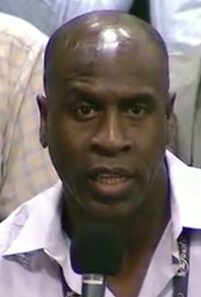 Larry Starks (pictured), who in November was among a reported 300 ESPN staffers laid off in reaction to cost pressures from the COVID-19 pandemic (scroll down), has become USA Today’s NBA editor. He “will also be editing our team of trending news reporters,” and will be based in Connecticut, USA Today spokesperson Hayley Hoefer told Journal-isms on Monday. For 12 years at ESPN, Starks was a coordinating news editor overseeing NBA content. “Prior to joining ESPN, Larry was the sports editor at the St. Louis Post-Dispatch and worked at the Commercial Appeal and The National early in his career,” Hoefer messaged.
Larry Starks (pictured), who in November was among a reported 300 ESPN staffers laid off in reaction to cost pressures from the COVID-19 pandemic (scroll down), has become USA Today’s NBA editor. He “will also be editing our team of trending news reporters,” and will be based in Connecticut, USA Today spokesperson Hayley Hoefer told Journal-isms on Monday. For 12 years at ESPN, Starks was a coordinating news editor overseeing NBA content. “Prior to joining ESPN, Larry was the sports editor at the St. Louis Post-Dispatch and worked at the Commercial Appeal and The National early in his career,” Hoefer messaged.
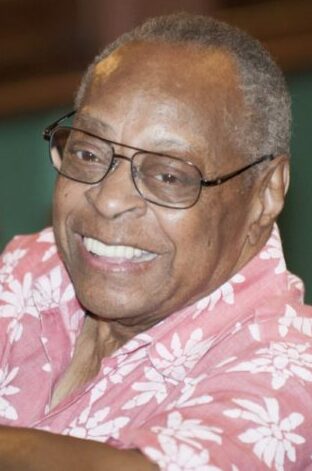 When The New York Times elevated Metro Editor Clifford J. Levy last week to a top editing role, Paul Delaney (pictured), a founding member of the National Association of Black Journalists, messaged, “as an aging nyt retiree [i must be among the oldest still breathing], it’s both wonder & joy to see the new leadership take over. cliff levy & david sanger started as young whipper-snapper copy kids …, in ny when i was an editor & look at them now. my concern then & now — black kids were not pushed, supported or allowed in the pipeline at the same level as whites; i think many in newsroom would agree, the reason for perpetual efforts.” Delaney, 88, was at the Times from 1969 to 1992, when he retired as senior editor.
When The New York Times elevated Metro Editor Clifford J. Levy last week to a top editing role, Paul Delaney (pictured), a founding member of the National Association of Black Journalists, messaged, “as an aging nyt retiree [i must be among the oldest still breathing], it’s both wonder & joy to see the new leadership take over. cliff levy & david sanger started as young whipper-snapper copy kids …, in ny when i was an editor & look at them now. my concern then & now — black kids were not pushed, supported or allowed in the pipeline at the same level as whites; i think many in newsroom would agree, the reason for perpetual efforts.” Delaney, 88, was at the Times from 1969 to 1992, when he retired as senior editor.
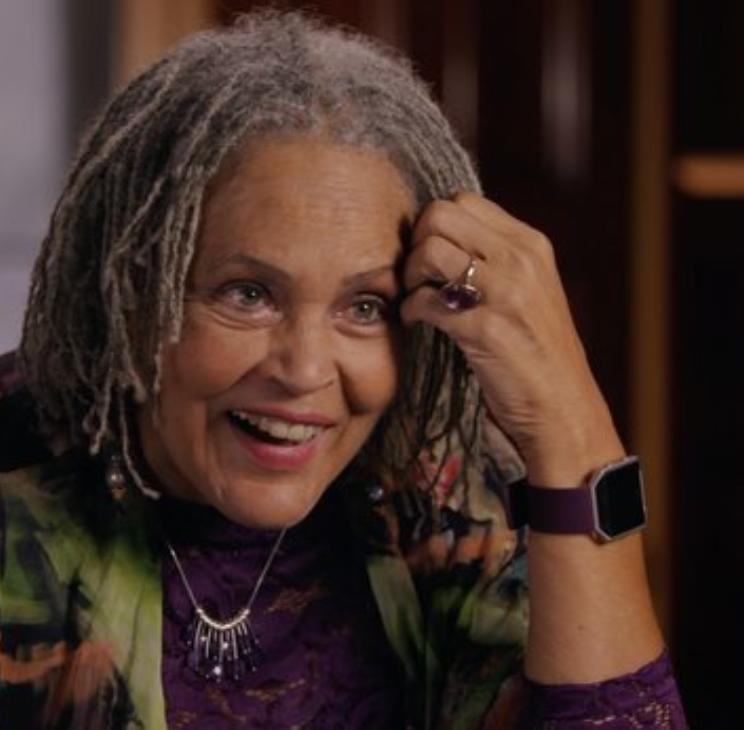 “The University of Georgia Press will host a university-wide campus read of ‘An Education in Georgia’ by Calvin Trillin in partnership with the New Georgia Encyclopedia, the Grady College of Journalism and Mass Communication and the Mary Frances Early College of Education,” Nimra Ahmad reported Monday for The Red and Black, the campus newspaper. “The Campus Read is a celebration for both desegregation at the University of Georgia and Black History Month. The program will include two virtual talks: The first is on Feb. 4 with Trillin, a long time staff writer at The New Yorker, and Charlayne Hunter-Gault (pictured), one of the first Black students to attend UGA. The other talk closes the Campus Read on Feb. 25 with Mary Frances Early, the first Black graduate from UGA, and UGA Rhodes Scholar Phaidra Buchanan. An Education in Georgia’ follows Trillin’s accounts of the integration process at UGA, which was spearheaded by Hunter-Gault and Hamilton Holmes. . . .” Register here
“The University of Georgia Press will host a university-wide campus read of ‘An Education in Georgia’ by Calvin Trillin in partnership with the New Georgia Encyclopedia, the Grady College of Journalism and Mass Communication and the Mary Frances Early College of Education,” Nimra Ahmad reported Monday for The Red and Black, the campus newspaper. “The Campus Read is a celebration for both desegregation at the University of Georgia and Black History Month. The program will include two virtual talks: The first is on Feb. 4 with Trillin, a long time staff writer at The New Yorker, and Charlayne Hunter-Gault (pictured), one of the first Black students to attend UGA. The other talk closes the Campus Read on Feb. 25 with Mary Frances Early, the first Black graduate from UGA, and UGA Rhodes Scholar Phaidra Buchanan. An Education in Georgia’ follows Trillin’s accounts of the integration process at UGA, which was spearheaded by Hunter-Gault and Hamilton Holmes. . . .” Register here
- The National Newspaper Publishers Association’s latest initiative into live broadcasts in 2021 is the new daily morning, breaking news program, “Let it Be Known,” hosted by NNPA Newswire Senior National Correspondent Stacy Brown, Brown reported Jan. 17. “The new program, which kicked off earlier this month, features an interactive rundown of the hot topics of the day – providing news and information to an audience that demands Black inclusion. Special guests will include NNPA publishers, reporters, photographers, and members of both chambers of Congress. . . .” The NNPA is the trade association for Black-press publishers.
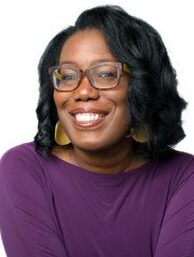 “Nicole Avery Nichols (pictured)— the editor who has led COVID-19 coverage and other important work for nearly two decades at the Detroit Free Press — has been named editor-in-chief of Chalkbeat, the nationwide journalism nonprofit dedicated to telling the story of American education,” the Free Press reported Sunday. “Avery Nichols has been an editor at the Free Press since 2003 and has supervised coverage, as she puts it, ‘from courts and corruption to immigration, race, gender, public health, pop culture, politics and much more.’ . . .”
“Nicole Avery Nichols (pictured)— the editor who has led COVID-19 coverage and other important work for nearly two decades at the Detroit Free Press — has been named editor-in-chief of Chalkbeat, the nationwide journalism nonprofit dedicated to telling the story of American education,” the Free Press reported Sunday. “Avery Nichols has been an editor at the Free Press since 2003 and has supervised coverage, as she puts it, ‘from courts and corruption to immigration, race, gender, public health, pop culture, politics and much more.’ . . .”
- “The White House expressed outrage on Thursday that Pakistan’s Supreme Court ordered the release of an Islamist convicted of beheading American journalist Daniel Pearl,” Nandita Bose and Steve Holland reported Thursday for Reuters. “Ahmed Omar Saeed Sheikh, who was the main suspect in the 2002 kidnapping and murder of the Wall Street Journal reporter, was acquitted by a panel of three judges. White House spokeswoman Jen Psaki called the decision ‘an affront to terror victims everywhere’ and said Washington is ‘committed to securing justice for Daniel Pearl’s family.’ At her daily briefing, Psaki called on the Pakistani government to quickly review legal options including letting the United States prosecute those acquitted. . . .”
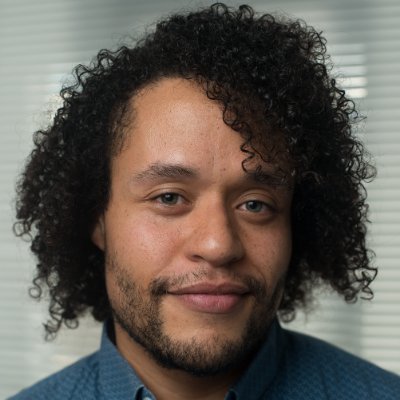 “People of colour represent at least 20 per cent of Canada’s population, yet the lack of racial equity in newsrooms across Canada is glaring,” Matthew DiMera (pictured), who describes himself as a “Black queer journalist,” wrote Jan. 8 for indiegraf.com, republished Jan. 15 on J-Source: The Canadian Journalism Project. “There hasn’t been research on Canadian newsroom demographics since the mid-2000s, which is a testament to how much we hold our industry accountable when it comes to diversity and inclusion.” DiMera added, “This year, I’m ready to launch a platform that truly empowers Black, Indigenous and people of colour voices. . . .The Resolve will be launching later this year. We are currently fundraising to be able to build a strong and vibrant freelance roster of Black, Indigenous and people of colour writers and editors across the country. . . .”
“People of colour represent at least 20 per cent of Canada’s population, yet the lack of racial equity in newsrooms across Canada is glaring,” Matthew DiMera (pictured), who describes himself as a “Black queer journalist,” wrote Jan. 8 for indiegraf.com, republished Jan. 15 on J-Source: The Canadian Journalism Project. “There hasn’t been research on Canadian newsroom demographics since the mid-2000s, which is a testament to how much we hold our industry accountable when it comes to diversity and inclusion.” DiMera added, “This year, I’m ready to launch a platform that truly empowers Black, Indigenous and people of colour voices. . . .The Resolve will be launching later this year. We are currently fundraising to be able to build a strong and vibrant freelance roster of Black, Indigenous and people of colour writers and editors across the country. . . .”
- In a new book about the media in Latin America, 21 mostly Latin American researchers “warn about the lack of media diversity in the region and how it affects the democratization process,” Marina Estarque wrote Wednesday for Lat Am Journalism Review. Estarque quotes Ximena Orchard, coordinator and one of the editors of the English-language “Media and Governance in Latin America: Toward a Plurality of Voices.” Pluralism “does not refer only to quantity, but to the diversity of what is offered and how inclusive these spaces are,” she said. “That is, it would have more to do with the distribution of power and opportunities to ‘appear in the public space’ – something very related to inequalities, a characteristic of Latin America.”
- “Myanmar’s military launched a coup on Monday, detaining the country’s civilian leader, Daw Aung San Suu Kyi, and her top lieutenants in early morning raids and seizing power from a government established only five years ago,” Hannah Beech reported Sunday for The New York Times. “While reporters were frequently harassed, intimidated, and arrested even under Suu Kyi’s administration, many fear the coup and state of emergency declared by the generals could signal an end to hard-earned media freedoms,” Hanako Montgomery added Feb. 2 for Vice News.” Practices that were the norm under the junta, including the use of pen names to protect identities, are slowly making a comeback, while violence against reporters is now a documented fact. Myanmar journalists have also been the subject of hateful posts on social media, as users attempt to quell unfavorable reports about the military.”
- “Burundi’s President Evariste Ndayishimiye on Thursday urged the country’s media regulatory body (CNC) to hold an urgent meeting with media houses that were banned or sanctioned to discuss possible reopening of the businesses,” Moses Havyarimana reported for The East African in Kenya. ” ‘CNC should meet with the media owners so that they can solve this…because media has a very important role in citizens’ lives,’ President Ndayishimiye said. Havyarimana also wrote, “Media freedom in Burundi began shrinking in 2015 after the failed coup to oust the late former president Pierre Nkurunziza led to a ban on various local radio stations. Burundi communication regulatory body (CNC) also suspended Voice of America (VOA) and British Broadcasting [Corporation] (BBC) in 2018 claiming that the two media houses reported biased stories that did not comply with journalism ethics. . . .”
- “Malawian authorities should investigate the police attack on journalist Henry Kijimwana Mhango, and ensure that those responsible are held to account,” the Committee to Protect Journalists said Thursday. “On January 22, a group of at least seven police officers in the Old Town area of Lilongwe, the capital, attacked Mhango, a freelance reporter who contributes to the U.K. daily The Telegraph, with pipes and sticks after he asked permission to photograph them enforcing COVID-19 regulations, according to a report by the Malawi Voice news website and Mhango, who spoke to CPJ in a phone interview. . . .”
- “Ethiopian authorities must conduct a thorough and independent investigation into the killing of journalist Dawit Kebede Araya, determine if it was motivated by his work, and hold those responsible to account,” the Committee to Protect Journalists said Thursday. “Unanswered questions about the killing of journalist Dawit Kebede Araya will send a message of fear to the broader media community in Ethiopia, and will entrench impunity in attacks on the press,” said CPJ’s sub-Saharan Africa representative, Muthoki Mumo. “Authorities must ensure that investigations into Dawit’s killing and its motive are swift and credible, make their findings public, and hold those responsible to account.”
To subscribe at no cost, please send an email to journal-isms+subscribe@groups.io and say who you are.
Facebook users: “Like” “Richard Prince’s Journal-isms” on Facebook.
Follow Richard Prince on Twitter @princeeditor
Richard Prince’s Journal-isms originates from Washington. It began in print before most of us knew what the internet was, and it would like to be referred to as a “column.” Any views expressed in the column are those of the person or organization quoted and not those of any other entity. Send tips, comments and concerns to Richard Prince at journal-isms+owner@
View previous columns (after Feb. 13, 2016).
View previous columns (before Feb. 13, 2016)
- Diversity’s Greatest Hits, 2018 (Jan. 4, 2019)
- Book Notes: Is Taking a Knee Really All That? (Dec. 20, 2018)
- Book Notes: Challenging ’45’ and Proudly Telling the Story (Dec. 18, 2018)
- Book Notes: Get Down With the Legends! (Dec. 11, 2018)
- Journalist Richard Prince w/Joe Madison (Sirius XM, April 18, 2018) (podcast)
- Richard Prince (journalist) (Wikipedia entry)
- February 2018 Podcast: Richard “Dick” Prince on the need for newsroom diversity (Gabriel Greschler, Student Press Law Center, Feb. 26, 2018)
- Diversity’s Greatest Hits, 2017 — Where Will They Take Us in the Year Ahead?
- Book Notes: Best Sellers, Uncovered Treasures, Overlooked History (Dec. 19, 2017)
- An advocate for diversity in the media is still pressing for representation, (Courtland Milloy, Washington Post, Nov. 28, 2017)
- Morgan Global Journalism Review: Journal-isms Journeys On (Aug. 31, 2017)
- Diversity’s Greatest Hits, 2016
- Book Notes: 16 Writers Dish About ‘Chelle,’ the First Lady
- Book Notes: From Coretta to Barack, and in Search of the Godfather
- Journal-isms’ Richard Prince Wants Your Ideas (FishbowlDC, Feb. 26, 2016)
- “JOURNAL-ISMS” IS LATEST TO BEAR BRUNT OF INDUSTRY’S ECONOMIC WOES (Feb. 19, 2016)
- Richard Prince with Charlayne Hunter-Gault,“PBS NewsHour,” “What stagnant diversity means for America’s newsrooms” (Dec. 15, 2015)
- Book Notes: Journalists Follow Their Passions
- Book Notes: Journalists Who Rocked Their World
- Book Notes: Hands Up! Read This!
- Book Notes: New Cosby Bio Looks Like a Best-Seller
- Journo-diversity advocate turns attention to Ezra Klein project (Erik Wemple, Washington Post, March 5, 2014)
.

